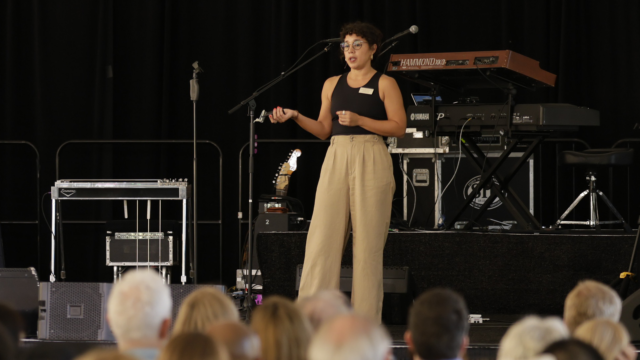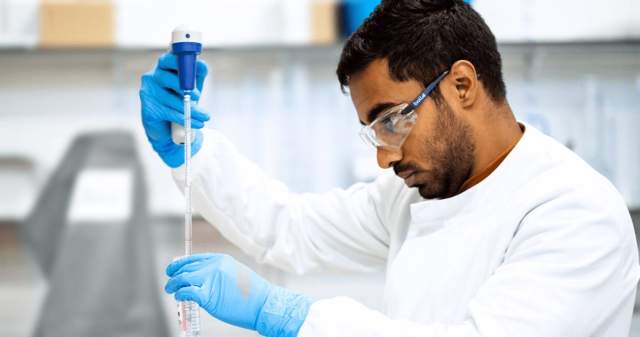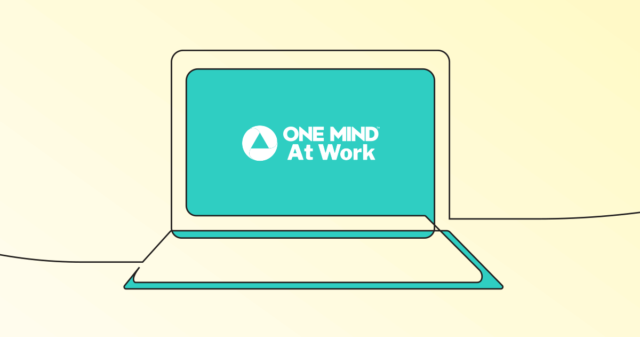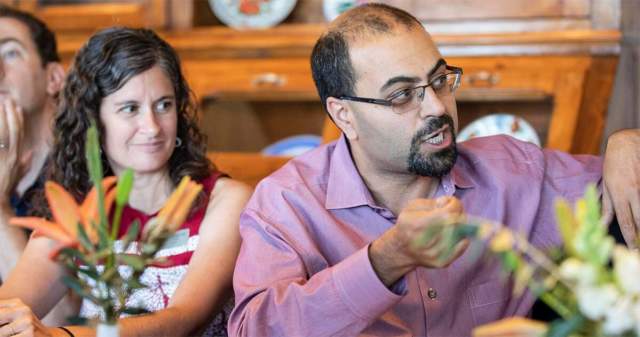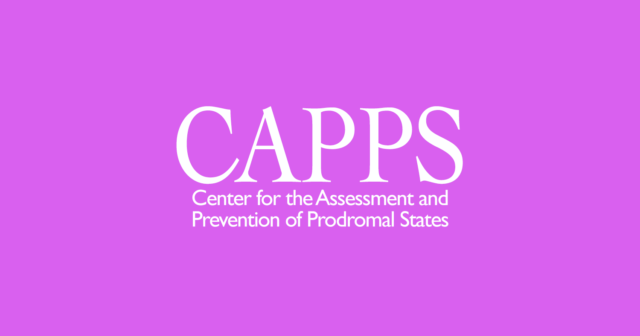This February, I had the privilege to interview “Carrie M. Stevenson” (a pseudonym), mother of a young woman who participated in treatment at CAPPS, the One Mind-funded Center for the Assessment and Prevention of Prodromal States at UCLA. Although her daughter, like many young people with early psychosis (including me at that age), was hesitant to receive treatment, her daughter still benefited significantly through her involvement with CAPPS. Below, my questions are in bold, and “Carrie’s” answers in plain text. -Brandon Staglin
How did you and your daughter find out about CAPPS? What motivated you and your daughter to participate?
It was fairly difficult to find CAPPS. My daughter was seeing a psychiatrist, who had diagnosed her as bipolar. After about six months of increasingly poor results, I realized I needed to keep looking for other options. I had discovered CHAMP [the Child and Adolescent Mood Disorders Program at UCLA] online, but the process of getting my daughter seen by a UCLA pediatrician ended up being one of the more difficult parts of the whole journey. As it is a long-winded story I will spare the details, but it eventually ended with my daughter getting an amazing pediatrician, Dr. Alice Kuo. My daughter was then seen at CHAMP but as she did not seem a natural fit, she was referred to CAPPS.
What was the nature of your daughter’s participation? How did you participate?
I was very grateful to have found CAPPS and wanted to participate as fully as possible, in hopes of changing the course of my daughter’s illness, as well as understanding what was happening. We signed up for the support group, individual therapy and switched to Dr. Daley, the psychiatrist suggested by CAPPS. My daughter also participated in the research study. Unfortunately, she did not really commit to the CAPPS program and was fairly resistant to participating, although was more agreeable when she was earning money from the research study. I ended up going to the support group alone, and my daughter participated as little as possible in her individual therapy.
Did your daughter receive any treatment there? If so, what treatment(s)?
She saw Dr. Daley for a little over a year, and did individual therapy for a few months. The reason she didn’t continue with it is because she then spent 11 weeks in the partial hospitalization program, then went to a NPS where she had individual therapy. Just for the record, she was also resistant to therapy at both of those places. Nine months later, we tried therapy at CAPPS again but it was suggested that we wait until my daughter was ready to fully participate.
What were your impressions of the program? If your daughter has shared her impressions with you, what did she think?
The CAPPS Program was run by a group of caring individuals. I feel that they were all extremely hard-working, but were always able to take the time to answer questions when asked. They were very dedicated to getting the best outcomes possible for the teens they represented and were really fighting for my daughter. At the time she was at CAPPS, my daughter was not accepting of the fact that she had a mental illness so it was difficult for her to fully commit to participating. However, now that she is at a residential treatment center and is much more stable, I am sure she would agree that it was a relief to have found an organization like CAPPS.
In what ways would you say the program contributed to your daughter’s well-being and ability to pursue life goals?
CAPPS has helped my daughter in many ways:
- Maria’s insistence that we get my daughter an IEP [individualized education program]. I was also grateful that she offered to attend the meeting with me. Also, the CAPPS team wrote a letter which helped her get a placement in an NPS [non-public school].
- Dr. Daley helped her get admitted into the partial program, and also into the inpatient program.
- Jamie really helped me with the decision to send my daughter to a residential program and even went as far as to visit a local program with me.
It has been some time since your daughter completed the program; would you say the benefits are still with her? How?
CAPPS was a stepping stone that helped our family when we really needed guidance. To be honest, my daughter has only started to do well since being at a residential school after she was given a high dose of an anti-depressant as an inpatient. However CAPPS was certainly an essential part of a long process. Maria, Peter and Jamie were all especially helpful and very responsive to any questions I had.
Before my daughter left for the RTC [residential treatment center], Dr. Suddath and Dr. D’Antonio decided that when she returned she should go back to CHAMP. Her symptoms were never easily categorized and always seemed to fall somewhere in the middle. No matter what her eventual diagnosis is, I will always be very grateful for CAPPS. It was a huge relief to feel that my daughter was being evaluated by top physicians and was receiving the latest treatment. Although I realize there are no guarantees with mental health treatment, having CAPPS as a resource did a lot to lessen my own anxiety.
Is there anything you’d like to add for curious parents who might want to learn more about CAPPS for their teens?
I would definitely recommend that they make an appointment. I have learned with mental health treatment, it is best to keep trying things until something works. By contacting CAPPS, an individual should at least be pointed in the right direction.
Thank you!

